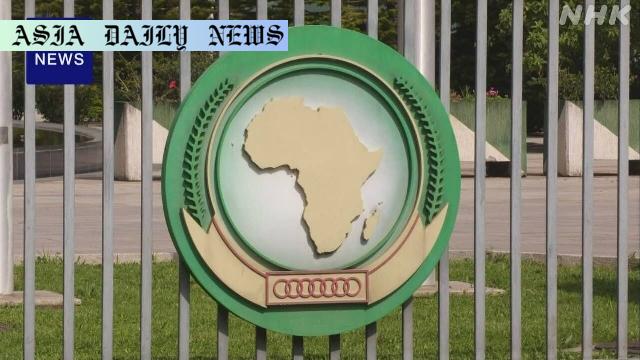Travel Ban: African countries express strong objections to the US travel ban citing unfair measures and potential long-term impact.
- The US imposed a travel ban affecting 12 countries, 7 of which are African nations.
- African leaders, including Chad’s president, voiced strong objections calling the move unfair.
- The African Union warned the ban could harm longstanding ties between Africa and the US.
- The ban aligns with earlier US foreign aid cuts causing growing mistrust in Africa.

The Controversy Surrounding Trump’s Travel Ban
The recent announcement of a travel ban signed by U.S. President Donald Trump has sparked significant backlash, particularly among African nations. With 12 countries listed under the ban, including seven from Africa, concerns over the political, economic, and social implications of this decision have emerged. Officials from these African nations argue the ban unfairly targets their countries, framing its justification under terrorism and national security concerns as unsubstantiated and potentially damaging to their reputations globally.
Moreover, affected African countries have quickly mobilized to counter this move. Chad’s President Mahamat Idriss Deby Itno announced reciprocal measures through social media, suspending the issuance of visas to U.S. citizens. His statement reflects a broader sentiment within the region—a determination to safeguard national pride and assert Africa’s dignity in the face of what many view as discriminatory policies.
Impact on U.S.-Africa Relations
The African Union responded to the travel ban with a strong statement, emphasizing how such measures jeopardize carefully nurtured relationships. The AU highlighted that the ties between these nations, ranging from economic partnerships to cultural exchanges, have developed over decades. The ban, they argue, threatens to set a dangerous precedent that undermines trust and collaboration.
This latest move follows the Trump administration’s earlier decision to cut foreign aid to Africa, further straining the already tenuous relationship. By combining visa restrictions with financial aid reductions, many African countries perceive these actions as dismissive of their contributions and value in global diplomacy.
The Larger Global Implications
Beyond the immediate consequences for African nations, the travel ban raises critical questions about global policies on inclusivity, cooperation, and respect among nations. The U.S. is known for its long-standing commitment to fostering international dialogue and partnerships, and such measures risk alienating allies and partner countries.
More importantly, the economic and social impact on families, professional interactions, and education cannot be ignored. Many individuals from the banned countries contribute significantly to U.S. universities, industries, and cultural diversity. Blocking their entry underlines an isolationist policy that may be detrimental in the long run.
A Call for Balance and Diplomacy
Leaders from across the world have often advocated for diplomacy as the cornerstone of international relations. Criticism of travel bans is rooted in their arbitrary nature and failure to address root causes of concerns such as security and terrorism. African nations are urging the U.S. to not just reconsider its stance but to engage in dialogue that monitors concerns constructively and ensures fairness without isolating entire populations.
The travel ban represents more than a policy decision; it reflects broader sentiments towards Africa and developing nations, drawing attention to the need for balanced foreign policies that strengthen, rather than strain, international ties.



Commentary
The Unintended Consequences of the Travel Ban
The U.S. travel ban targeting multiple African nations has added another layer of complexity to America’s relationship with the African continent. Africa, rich in cultural, economic, and political importance, has long viewed its partnerships with the U.S. as vital for development and global standing. Yet, measures such as these undermine the sense of cooperation and equality such relationships should nurture.
A Question of Fairness
The justification of ‘national security’ and terrorism concerns warrants critical evaluation. Many African leaders have highlighted that their countries remain committed to eliminating terrorism but do not align with the broad-stroke stigmatization such policies entail. The ban overlooks the unique conditions and distinct challenges faced by these nations, furthering stereotypes rather than promoting nuanced understanding.
Reflection and Reconciliation
It is imperative to consider the far-reaching implications of such exclusionary policies, ranging from economic loss to weakened person-to-person ties that are the backbone of any strong international relationship. Repressive decisions risk causing damage that may take years to undo, robbing both regions of opportunities for mutual advancement.
Perhaps the key takeaway is the need for continued dialogue, where all parties, regardless of their economic or political stature, are treated with fairness and respect. Diplomacy, after all, lies in fostering trust and collaboration—not division. The African nations’ call for reciprocal measures showcases their resolve to stand their ground, and their message should not be ignored.